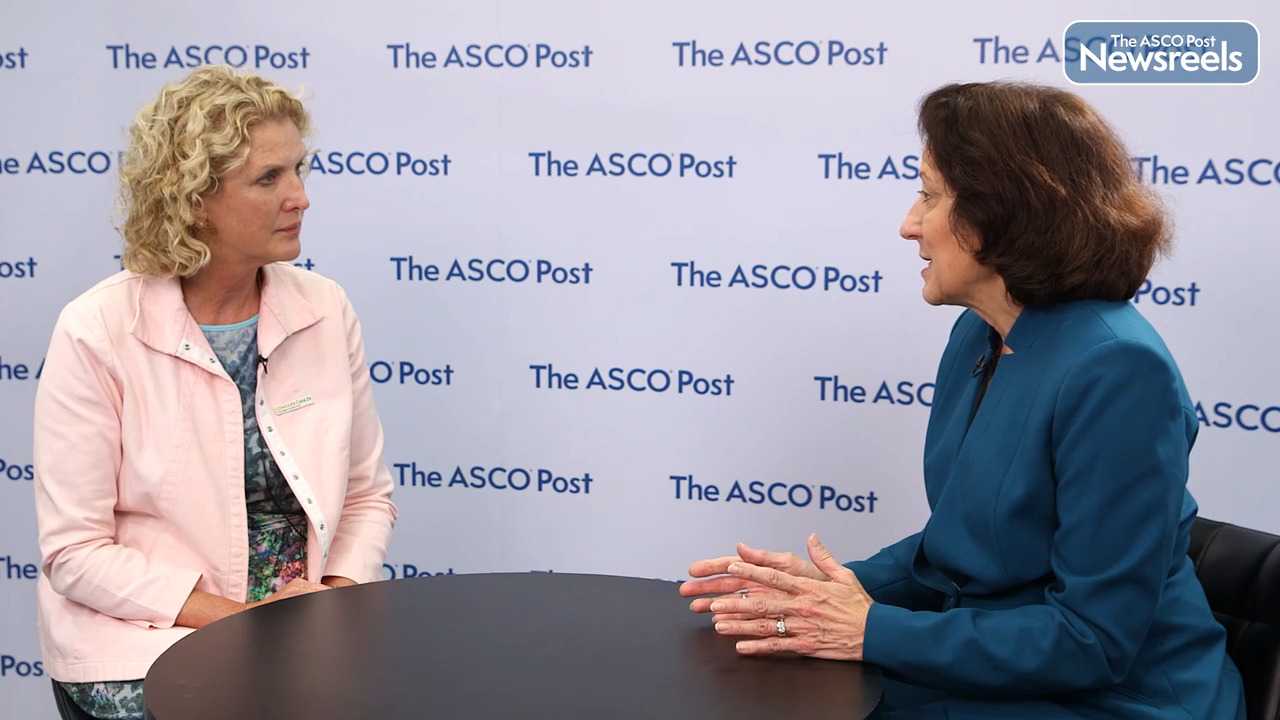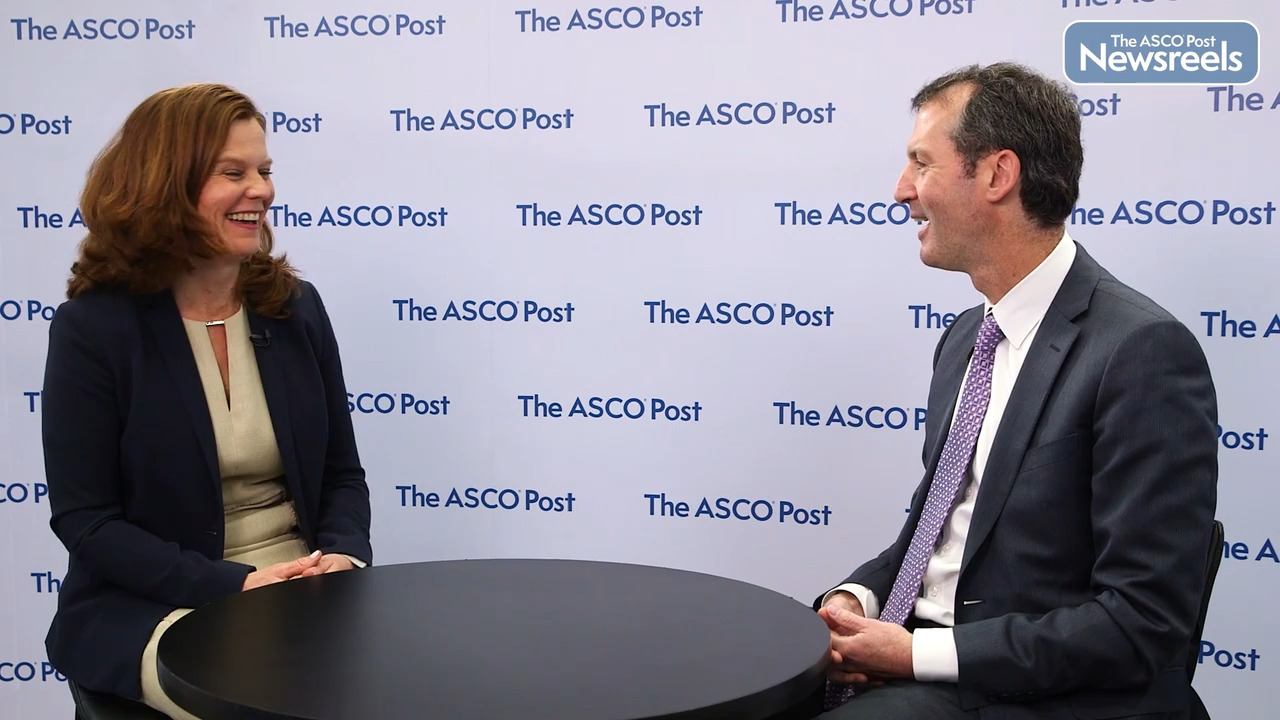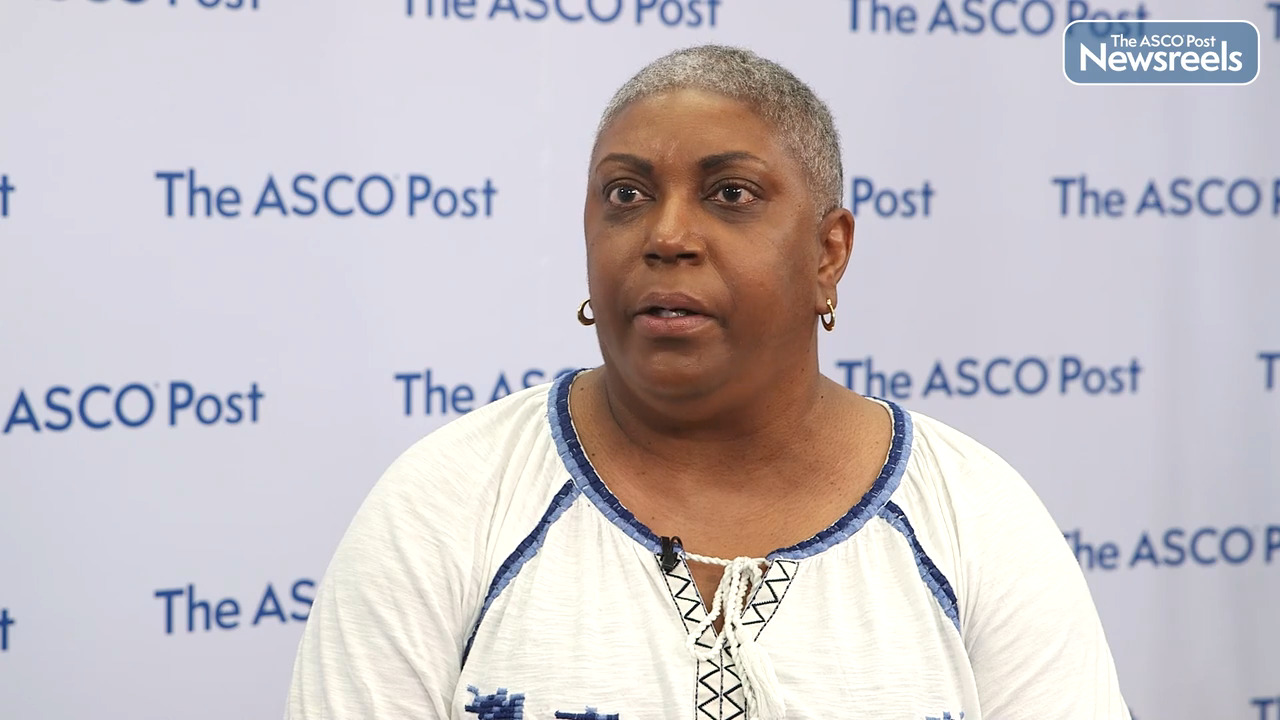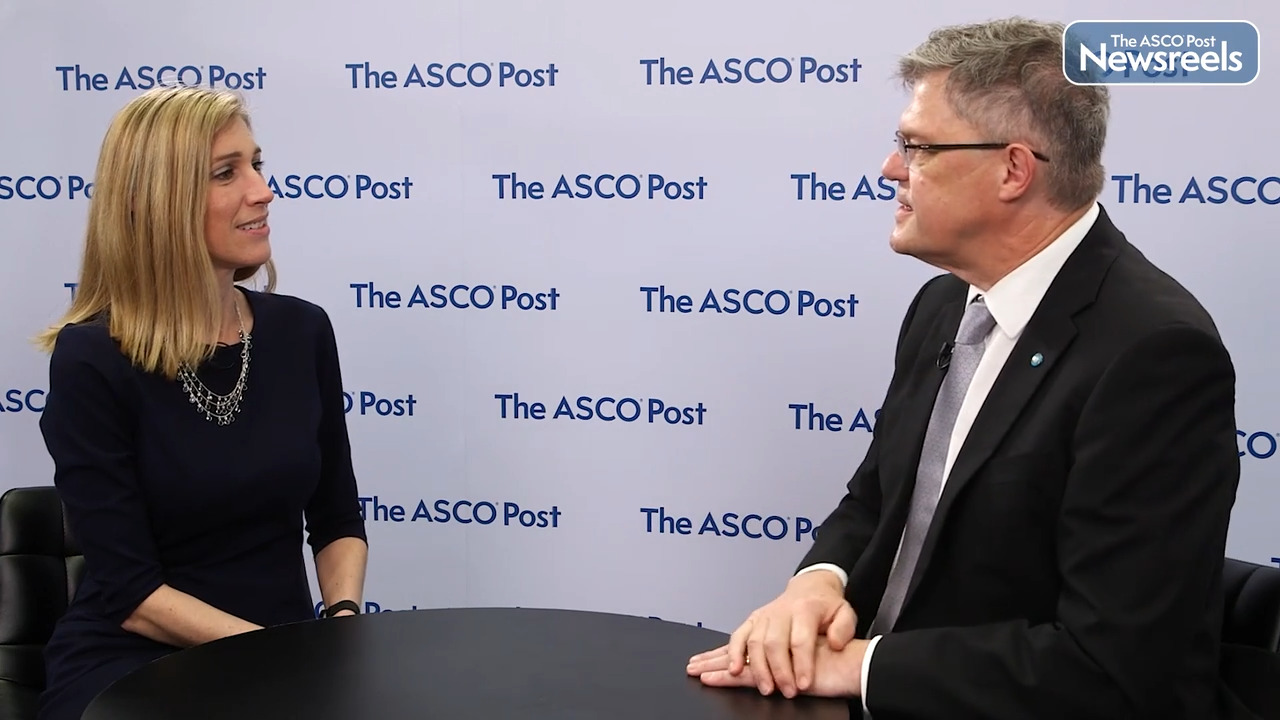Sumanta K. Pal, MD, on Urothelial Carcinoma: New Results on Cabozantinib Plus Atezolizumab
2022 ASCO Annual Meeting
Sumanta K. Pal, MD, of City of Hope National Medical Center, discusses findings from the COSMIC-021 study, which showed that cabozantinib plus atezolizumab demonstrated encouraging clinical activity with manageable toxicity in patients with inoperable locally advanced or metastatic urothelial carcinoma. The combination was administered as first-line therapy in cisplatin-based chemotherapy–eligible and –ineligible patients and as second- or later-line treatment in those who received prior immune checkpoint inhibitors (Abstract 4504).
Transcript
Disclaimer: This video transcript has not been proofread or edited and may contain errors.
The COSMIC-021 study is a trial that includes multiple different histologies, multiple different cohorts. At this year's ASCO meeting, ASCO 2022, I presented data pertaining to cohorts three, four, and five. This specifically looked at patients with advanced urothelial carcinoma. The composition of each of the cohorts was distinct. In cohort three, we had patients that were cisplatin-ineligible. In cohort four, patients that were cisplatin-eligible. And finally, in cohort five, patients that had received prior immune checkpoint inhibitors. What ultimately it boiled down to is about 30 patients per cohort. In terms of the distribution of patients, it was predominantly male, as you might expect. Most of the patients had a bladder primary, although we did actually have good representation of upper track tumors, ureteral tumors, and so forth. That was about 30% of the study population. Amongst those patients that had received prior immune checkpoint inhibitors, about 30% had received one prior therapy implying immune-based treatment, and about 68% had received two or more prior lines of treatment. What we saw was actually a graded response. In patients who were cisplatin-eligible we saw the highest response rate, 30%. In patients that cisplatin-ineligible we saw a response rate of 20%. And finally, in patients that had received prior immune checkpoint inhibitors, we saw a response rate of 10%. It's always tricky to know what endpoints to follow in these relatively small studies. One thing that really I found intriguing was the duration of response. And with substantial follow up at this point in time, we still haven't reached the median duration of response amongst those patients that were cisplatin-eligible. I really think that the toxicity profile that we saw in this study really mimics what we've seen in other experiences of cabozantinib with atezolizumab. The combination seems to be very well tolerated. We used a dose of cabozantinib at 40 milligrams. The rates of hepatitis, the rates of other toxicities that you'd expect with a combination like diarrhea, were very reasonable and manageable by and large. So in summary, I think that this combination really does have activity. My hope is that we'll be able to study it further in certain contexts. And in particular, there's a study ongoing right now that I'll plug, MAIN-CAV through the Alliance. It's led by Dr. Shilpa Gupta. This trial I think is a prime way for us to understand the role of cabozantinib with immunotherapy where that combination's being assessed in the maintenance setting.
Related Videos
Lisa A. Carey, MD, of the University of North Carolina Lineberger Comprehensive Cancer Center, and Hope S. Rugo, MD, of the University of California, San Francisco, Helen Diller Family Comprehensive Cancer Center, discuss phase III results from the TROPiCS-02 trial. This study showed that sacituzumab govitecan-hziy was more beneficial than single-agent chemotherapy in terms of progression-free survival in heavily pretreated patients with hormone receptor–positive/HER2-negative and unresectable advanced breast cancer (LBA1001).
The ASCO Post Staff
Ann H. Partridge, MD, MPH, Dana-Farber Cancer Institute, and Ian E. Krop, MD, PhD, of Yale Cancer Center, discuss phase I/II findings on patritumab deruxtecan, a HER3-directed antibody-drug conjugate, in patients with HER3-expressing metastatic breast cancer. A pooled analysis showed antitumor activity in women with HR-positive/HER2-negative and HER2-positive advanced disease, as well as triple-negative breast cancer (Abstract 1002).
The ASCO Post Staff
Stephanie Walker, a former nurse and current activist with the Metastatic Breast Cancer Alliance, discusses findings from the BECOME project (Black Experience of Clinical Trials and Opportunities for Meaningful Engagement). They show that, even though Black patients comprise between 4% and 6% of all clinical trial participants, Black women with metastatic breast cancer are willing to consider taking part if steps were taken to increase their awareness, build trust through clear communication with health-care providers, involve people of shared racial/ethnic identity and health experience, and help patients find and access trials (Abstract 1014).
The ASCO Post Staff
Nancy Davidson, MD, of the Fred Hutchinson Cancer Research Center, reviews results from four abstracts about the importance of long-term follow-up in studies of adjuvant endocrine therapy for hormone receptor–positive breast cancer. Because the natural history of hormone receptor–positive breast cancer is long, an effort is underway to improve selection of patients by clinical parameters or biomarkers, refine the endocrine therapy background, and administer more effective combinations of endocrine therapy with other agents.
The ASCO Post Staff
Alicia K. Morgans, MD, MPH, of Dana-Farber Cancer Institute, and Ian D. Davis, PhD, MBBS, of Monash University and Eastern Health, discuss the latest findings from ANZUP Cancer Trials Group’s ENZAMET cooperative group trial of enzalutamide in patients with metastatic hormone-sensitive prostate cancer. The results corroborate the benefit of enzalutamide with improved overall survival, and involve some exploratory subgroup analyses (Abstract LBA5004).





